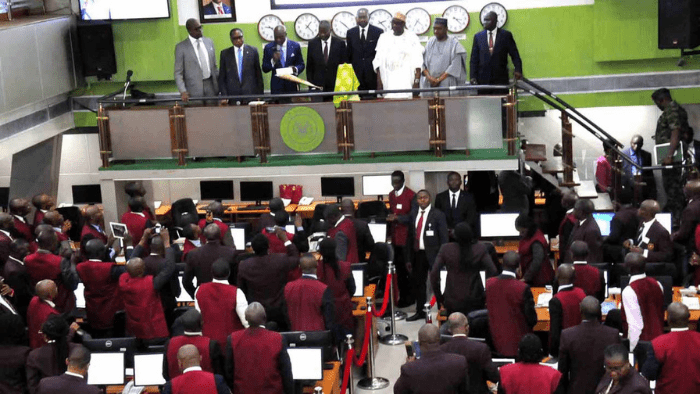The Nigerian Exchange stock market capitalisation rose to N56.6 trillion at the end of September, 2024 from N40.9 trillion at the beginning of the year.
This translates to N15.717 trillion gains in the last nine months.
This is despite the double-digit inflation rate, unstable foreign exchange market, soaring Monetary Policy Rate (MPR), among other macroeconomic challenges.
The Nigerian economy has witnessed inflation that moved from 28.92 per cent as at December 2023 to 32.15 per cent as of August. Also, the Central Bank of Nigeria (CBN) has increased the MPR by 850 basis points to 27.25 per cent from 18.75 per cent last year with a focus on moderating inflation.
Similarly, the Nigerian Exchange (NGX) Limited All-Share Index (ASI) rose by 31.81 per cent from 74,773.77 points on December 29, 2023 to 98,558.79 points on September 30, 2024.
Foreign investors’ participation in the stock market stood at 18.86 per cent as of August 2024 when compared to 9.22 per cent, reducing domestic investors’ dominance to 81.14 per cent as of August 2024 from 90.78 per cent as of August 2023.
The aggressive foreign investors’ participation impacted on highly capitalised stocks such as Dangote Cement, and Airtel Africa, among others that triggered the N15.7 trillion market capitalisation in nine months of 2024.
Also, the ongoing banking sector recapitalisation as directed by the CBN, coupled with impressive 2024 half year corporate earnings also influenced investors’ decisions in taking positions in banking stocks.
Speaking on the stock market performance in the first nine months of 2024, the vice president, Highcap Securities Limited, David Adnori, argued that investors were trading based on sentiment.
Adnori, however, was optimistic that the stock may maintain its positive momentum on the backdrop of banking sector recapitalisation and positive quarterly results to be released by banks to further strengthen the performance of the bourse.
Amid the hike in MPR to 27.25 per cent, capital market experts stated that its impact has created sentiment trading among investors who see the fixed-income market as an alternative investment opportunity to hedge against double-digit inflation.
Investment Banker & Stockbroker, Mr. Tajudeen Olayinka, stated that, the N15.7 trillion market capitalisation gain in nine months of 2024 tells us the presence of huge liquid funds in the hands of institutional investors who currently dominate activities in the stock market.
“It also holds the fact that the future is bright for some of the listed companies, hence, investors are positioning their portfolios for that brighter future. This is also the reason the market remains resilient in spite of the high interest rate regime,” he said.
On the stock market projection for the rest of the year, he said, ‘It is going to be more of a balanced market, with investors exercising their rights to additional shares and/or taking new shares to maintain a balance.’
The chief operating officer of InvestData Consulting Limited, Mr. Ambrose Omordion said, the Nigerian stock market was one of the best Exchanges in Africa, ahead of Johannesburg Stock Exchange, and Egypt Stock Market in the period under review.
He noted that some reforms by the federal government and the Central Bank of Nigeria (CBN) played a critical role in the stock market performance in nine months.
He added that, “the current state of the market with likely continuation of trend or reversal has created opportunity to buy into real value and fairly priced companies as revealed by their half-year corporate numbers and price to earnings ratios ahead of their Q3 scorecards. As correction at this point makes the equity market attractive due to sentiments associated with year-end and last quarter of every year.”





